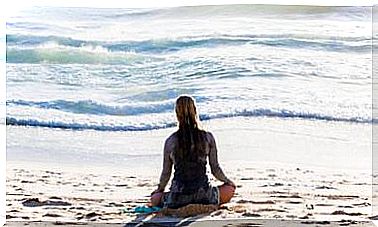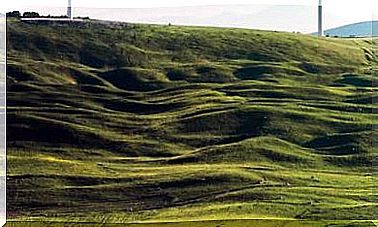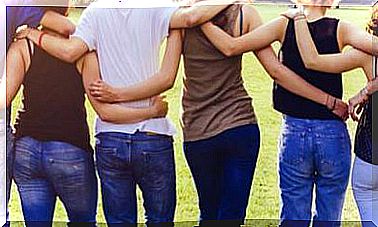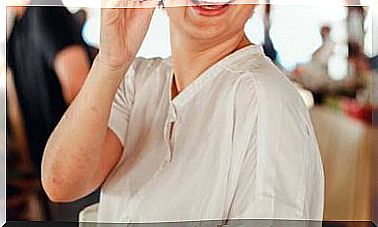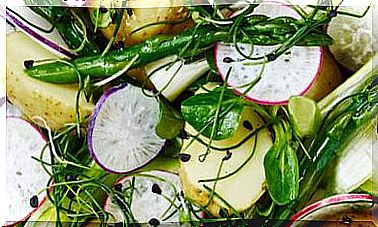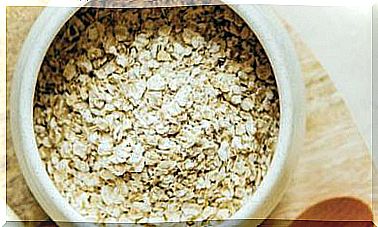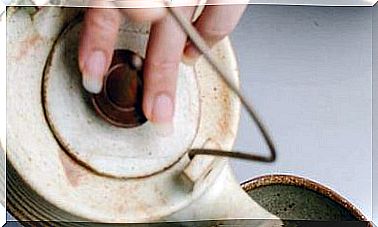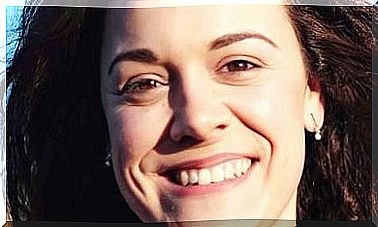“Do Not Put On The Plant What You Would Not Want On Your Table”
The organic farmer, geobiology expert and popularizer condenses the essentials of his experience in this interview.
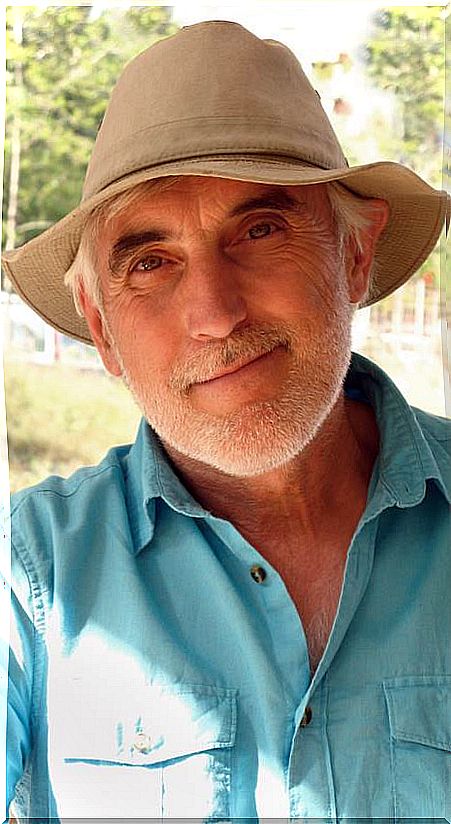
When we were working on the publication of El huerto familiar ecológico, in 1999, Mariano came from time to time to our publishing house, in Barcelona, from his house in Benicarló. He always brought a rustic feel to the modern building and we spent hours going through the complex 416 three-column pages of the first edition, examining the more than 600 photos, drawings, tables and graphs.
He was meticulous and if the book was published with something that could be improved it would be because he took pity on us and gave up an umpteenth correction. It ended up being so complete that it overflowed the initial budget. This practical manual for gardening was becoming an encyclopedic work, a madness to edit. After several discussions between partners, it was about to go unpublished.
Then it was my turn to apostolate that such a work would be reissued many times, that at some point the investment and the thousands of hours dedicated by many people would be recovered. So it happened. And as we see in this interview, many of the great things in life end up happening like this, based on coincidences and decisions, of choosing a path and moving on.
In some of those visits, Mariano even brought the family with him, with a baby that caused a sensation while he was breastfeeding in the lobby, coinciding with the departure of the editorial staff to eat. For this reason, when I conducted this interview with him, I was amazed to find a lively 16-year-old young man, Anay, taking some photos of me with Mariano for the occasion, in the Sopa restaurant in Barcelona, a modern vegan-vegan in which the boy, multi-talented, he was already working as a pastry chef.
The seeds grew
—Mariano, these three decades have gone a long way …
—Yes, these young people come with a good track record, they can go very fast and there are things that have changed for the better. Somehow, everything that was only marginal now becomes institutional, even a bet for the future. Do you know what speech I was hearing on the radio today as I was coming here? The one of the new king saying: “Spain is a power in ecological agriculture and those are the things that it is necessary to promote”.
Our work has been to sow seeds, information was lacking. Think about 60,000 copies of this full-color book have been published and have reached many more people. Somehow it has been transmitted to a critical mass of readers. In addition, even the most reluctant people, but now afflicted by diseases that affect them a lot, are beginning to question their lifestyle and diet. In recent decades, obesity, food allergies, ailments such as Crohn’s disease and irritable bowel, diseases associated with the consumption of refined foods, the use of preservatives, antibiotics, the non-regeneration of flora have increased. bacterial. The problem is that we have reached the point where suffering confronts us with carefree attitudes about health or food.
The comprehensive vision
– That more and more people are interested in the cultivation of an urban garden and organic food is not then just another fashion?
—Human beings evolve, we survive, either by understanding or by suffering. If you understand that when the traffic light is red you should not cross, you avoid accidents. If you don’t understand how processes or structures work, you suffer.
Food is complex, its nutrients are not just NPK (nitrogen, phosphorus, potassium), as Liebig determined in the 19th century, something that industrial agriculture is still based on. The human body does not function as a steam boiler and food does not only provide calories for the human connecting rods to move. This conception begins in the time of the Enlightenment, at the time when trying to understand the mechanics of life, and as it was very complex, reality began to be separated into isolated parts of the whole.
That vision led to industrial processes, refining and discarding everything that was considered useless, inferior or secondary. But now many studies show, for example, the advantages of whole wheat bread over white bread, the relationship of white rice with diabetes or the influence on obesity of the lack of bacterial flora in the intestine.
Even if you take probiotics, which have lactobacilli, you are only regenerating two or three of the hundreds of types of bacteria needed. In several experiments it has been found that the bacteria that make up the complex bacterial flora extract elements from fiber, from whole foods, and that the health-altering effects of a diet focused on refined foods are not noticeable in the first generation. It is the second generation that begins to have some problems and in the third, serious and degenerative diseases are already visible. And although it was known for many decades that refined foods harm, we did not see their effects in such a tangible way.
We fight to make people understand that the whole was healthier, and time has passed. In all this process there has been a change due to suffering, the number of people, the critical mass, already exists. Now you hear on the street talking about the evils caused by the Monsanto company with information and a conviction …
Early vocation
—Yes, I am surprised when a young man explains things I wrote about decades ago. They do that very well.
—Everything in life, in the processes of change, requires that the context allows it. Most of the issues that we clearly saw and raised were like bacteria from a new fermentation, although the gluten in the social context of that time was still not very sensitive; there was possibly not enough “critical mass”.
“When did you decide to become a farmer?”
—At thirteen I said: “Jo vull ser llaurador” (“I want to be a farmer”) and I left high school, much to the annoyance of my parents. I recognize that intensive gardening is complex, since you grow seven or eight crops at the same time, but the good thing is that, if one year the tomatoes did not go well, you earned from the cucumbers. And to my overactive mind, apart from the fact that you also had to know mechanics or masonry, any activity that forced me to continually change tasks was great, very creative.
“And what led you to organic farming?”
—At the age of forty of kids, between 14 and 16 years old, who left their studies to dedicate ourselves to the field, the Ministry of Agriculture of the time decided to indoctrinate us in the practices of “modern” agriculture. We worked with our parents and, from 6 to 8, they gave us a class on plant pathology, chemical fertilizer inputs, depreciation of machinery … And the first sentence (I was left with the image of the classroom that afternoon) was: “You don’t you are farmers, you are agricultural entrepreneurs who have a farm that you have to make profitable “. I had decided to be a farmer and they tell me that I am not a farmer but an industrialist who makes tomatoes …
But at the same time I had the great luck of having an atypical professor, who was Cristóbal Colón de Carvajal and Pérez de San Millán, Marqués de Benicarló, who was an agricultural expert and was influenced by French soil scientists. In a class on agrochemicals he spoke of biological balance in crops and said that when we apply an insecticide to combat a pest, we also eliminate the auxiliary fauna and create imbalances, with which more pests come and the insects develop resistance. We are talking about the year 1974, in which a marquis is explaining to me: “When DDT arrived , it was enough to shout ‘DDT!’ on a farm infested with potato beetles and they died on their own. After three or four years of using this treatment, when you added DDT, even at twice the concentration, the beetles would take out the shower brush and laugh in your face. ” .
A personal path
“So a teacher can change your life?”
—It was just one more piece of information than he explained for forty kids and one of them was left with the song. They are coincidences that are linked to each other. For example, at the same time I had serious health problems – I weighed 90 kilos, with chronic constipation and other problems – and my father gave us a surprise box of books for Reyes. There I find a book from a naturopathic publisher on constipation written by Sintes Pros. And I read that my health problems are due to white flour, refined foods, poor posture when evacuating. .. and that the ideal to enjoy good health was a vegetarian diet. It was a revelation, I felt that was what I had to be: vegetarian. And of course, new drama for my parents.
Looking for healthier food alternatives and crops, and out of spiritual concern, in 1980-81 I ended up in France, in a Rosicrucian community, which did organic farming. I was going for the spiritual, but I asked to be able to live there and work in the garden. And that’s how the two years that I should have been doing military service (I was the first conscientious objector in Castellón), I spent going back and forth from time to time to help my parents.
“I thought you went to France to study geobiology …
” “That was part of the process.” In 1981, in the magazine Integral – I am very grateful to the Integral of that time – the first article on geobiology and bioconstruction was published, translated by Serafín Sanjuan and Álvaro Altés. And suddenly there I read that on that date in June there is a geobiology course in Chamarande, at the Green University of Paris … And there I hitchhiked. That geobiology course opened me to new realities, it resonated with the moments of my childhood when I accompanied my uncle to search for wells with the pendulum… In the following years, I studied in France and Switzerland, at the same time that I began to “prospect” houses of family and friends, to change their beds and to check the close relationship with health. I even had to choose between the tranquility of my garden and the whirlwind that would come when writing the book Living in a healthy home, in 1988. I accepted the challenge of getting involved in spreading these issues, since no one was doing it at that time.
“The plant grown in the open air naturally has more flavor and substances that protect us.”
The garden is your table
“Let’s go back to the present.” What are the main novelties of the new edition, and there are fifteen, of The ecological family garden?
“It was a thorough review and update.” It has about 20 more pages, and now the elaboration of compost in domestic composters, in heaps or vermicompost is explained step by step . And some more plants appear, such as the cultivation of arugula or stevia.
Another novelty is the aerated compost tea, which is traditionally made by anaerobic fermentation, but if it is made by aerating for 48 hours with a small compressor, such as fish tank pumps, the bubbling causes the aerobic bacteria to multiply by millions . That black broth that comes out, once filtered, apart from not smelling bad, provides in a balanced way all the nutrients that plants that are in full production need, increasing vitality and yields.
What I do believe to have made an interesting contribution is in the treatment part. The book collected all the ecological options that there were so far. But I have noticed that in practice we do not use all of them. My philosophy is to use as few remedies as possible. Better results give priority to good compost, fertile soil, healthy plants, balanced soil … If there is a problem, it is that an imbalance has occurred and you have to study the origin. I am against using copper or sulfur in plants, even if they are authorized in organic farming. The basic philosophy is: don’t put anything on them that you wouldn’t eat. That is, what you would not put in the salad, do not put it in your garden plants, because it will end up in your salad.
“Yeah, yeah, but what do I do if I have aphids on the beans?”
“Maybe, for example, if there have been unusual storms, a lot of nitrogen precipitates and the beans will become infested with aphids;” the aphid is the drainer of this excess nitrogen. Make a preparation with two chillies and three cloves of garlic, crush them in a liter of water and spray it on the plants.
“And on the vine?” For many years, the grapes rot for me …
—Easy: yogurt. The lactic acid in yogurt or sauerkraut, or pharmacy lactic acid, 5%, has antifungal effects similar to synthetic fungicidal products: it changes the pH and does not allow fungi to develop. A yogurt diluted in a liter of water and spray. In addition, it is an excellent foliar fertilizer.
Vegetable cure
“Nothing for extreme cases?”
—I insist that if you do things well, there are almost no problems, and if there are, they are easy to solve. Although, just in case, in the book I have included the recipe for the “reinforcing and regenerating plant extract”, the “cure-all”, which is the synthesis of turning it around and observing all the aromatic substances that plants synthesize to protect themselves. In fact, when the plants have been grown in the open air and have not been forced or excessively pampered, they have more flavor and more substances that protect them … and protect us. Compare, for example, a chilli and a sweet pepper. They are first cousins, but the sweet pepper has no defense weaponry. Because the spicy – capsaicin – is what this family of plants has created to defend itself. What is the first thing you see when looking at the two plants? The chillies are small and the peppers are large. The reason is that the former spends a good part of its energy protecting itself.
This reinforcing extract that I describe is made from an amalgam of defensive substances made by nature, such as propolis tincture, essential oils of thyme, oregano and savory, or turpentine, protective of pine. It is mixed to emulsify with soy lecithin and olive oil. One tablespoon per liter of water is enough, diluted with one tablespoon of potassium soap and the resulting liquid is sprayed on the plants that require it. We have verified that it has curative effects in cases of attacks by aphids, tomato tuta, rusts, powdery mildews and even viruses.
The origin of the flavor
“Do greenhouse tomatoes grow with less stress?”
—They are the polar opposite of organic farming. They are stuffed with an abundance of synthetic fertilizers, they have controlled temperature and humidity, plus the appropriate insecticides and fungicides so that nothing attacks them. They do not need to spend energy generating defensive substances, so the plant is exclusively dedicated to gaining weight. Fattening, obese, but lacks flavor and aromatic and protective substances. And when you already curl the curl of human incoherence is when you take a tomato of the marmande variety and subject it to water stress to sell it as if it were a raff tomato, more tasty. The raff tomato that people buy is usually marmande tomato that has been made very thirsty, so even though it is smaller, it has more flavor.
“In a well-cultivated garden the bacteria in the soil are similar to those in our intestinal flora.”
A question of flora
“Does having a garden change the way you eat?”
—I catch the people who come to my orchards eating freshly picked carrots, with some soil. Epigenetics teaches that in a well-cultivated garden the bacteria in the soil are similar to those in our intestinal flora. Our gut bacteria come from the dirt and dust around us! When we were little we used to play at eating dirt, babies do it instinctively; Now our children are raised with an excess of asepsis, the food comes to us neatly disinfected … Perhaps that is the secret, since it is more than proven that excess hygiene in childhood leads to allergies in children and future adults, while farm children have very strong immune systems. If you do not face enemies you do not generate defenses.
One of the gentlemen who cultivates in “L’hort de les flors”, an ecological social garden that we have in Benicarló, had been working at Seat for almost forty years, and when he retired he returned to town and got a small plot of land. He arrived quite obese, he ate a lot of meat and hardly any vegetables, and he has been changing. You are now slim, without cholesterol or high blood pressure. He says: “I didn’t eat vegetables before, but now, since I grow them, I enjoy eating them.”
– Do the benefits of urban gardens go beyond the strictly economic?
—Municipal gardens cannot be approached in terms of money or how much would be made by building flats instead. Take this acacia, for example (points to one of the trees on the side of the street). How much does each of those seed pods cost? What are they for? And the gardeners and the street sweeper have to be paid to collect the dry leaves every day! We better cut it then? No, urban gardens allow contact with nature and its rhythms to the entire neighborhood, with some “gardeners” who not only do not charge but, thanks to their activity, save the community on medical care and become more integrated into it . I have heard several older gardeners say: “To be at home, watching TV, wasting time … here at least you entertain yourself and talk to people.”
A large part of modern pathologies are due to lack of contact with the green, with the earth, uprooting and poor nutrition. The garden allows you to touch the earth again, breathe and eat better.
—But many people are skeptical that city tomatoes grow in a polluted environment…
—Yes, the dust on that car also settles on the tomato. But the plants do their filtering and we must be aware that this pollution also enters our lungs. Recent studies in epigenetics show that plants that grow in the same environment in which we synthesize substances that allow them to adapt and protect themselves from environmental aggressors. So when we eat plants that have grown on the balcony or terrace, these plants, apart from quality nutrients, provide us with specific substances, such as antioxidants and bioflavonoids, that protect our body or that, in a certain way, act as vaccines. that help us to cope with the aggressions of that environment, making it a healthy practice, especially for people who live in polluted urban environments.
Cultivate health in three areas
—On your website you head: “Health, Habitat, Conscience.” We have already talked about health and habitat. The conscience thing, how do you fit it in?
—As personal work and facing society, I address three areas: the earth (matter, the physical body, what we work in the garden), the energy body (electricity, the energies that surround us and move life, it is what I work with geobiology) and consciousness, which discovered the reason for existing and what we have come to do here.
I had an experience of clinical death at the age of six, when I contracted mumps and the pediatrician prescribed the wrong medication. I have suffered tuberculosis and other serious diseases, several car accidents … everything has happened to me. But being clinically dead makes you not afraid of death or pain. This led me to write a book, Death, birth to a new life, in which I tried to synthesize all the available information, as in the garden book. I am interested in works such as that of Pim van Lommel, the scientist who has studied patients in clinical death due to cardiac arrest and who later recall the experience. His research was published in The Lancet magazine under the title: “Consciousness survives the death of the physical body.”
Each body is an opportunity, with the baggage that we have accumulated in life after life experiences, to continue working, experimenting, expanding consciousness …
For me the important thing is that people are aware that they have a physical body, they have an energy body and they have a ” lucid consciousness ” that also wants to be awakened and expressed. What will remain of our lives when the body turns to ashes or compost are experiences, nothing more. You’re not taking anything except that baggage. Many times I have thought that the books that I have published and with which I have made myself known to society are only the links so that one day I can also talk about conscience and pay me some attention. Maybe there had to be a character for someone to listen to him one day.
But I am very calm, I know that it is only the suit that I wear and the role that I play to continue the path. I would like to leave with the feeling of having fully lived each present, carrying out the personal and social work that perhaps my lucid conscience proposed for this existence – choosing to express myself as Mariano Bueno – and having done everything possible to encourage those who read the books or me. listen to ” cultivate health ” in all areas of your life: matter, energy and consciousness.
